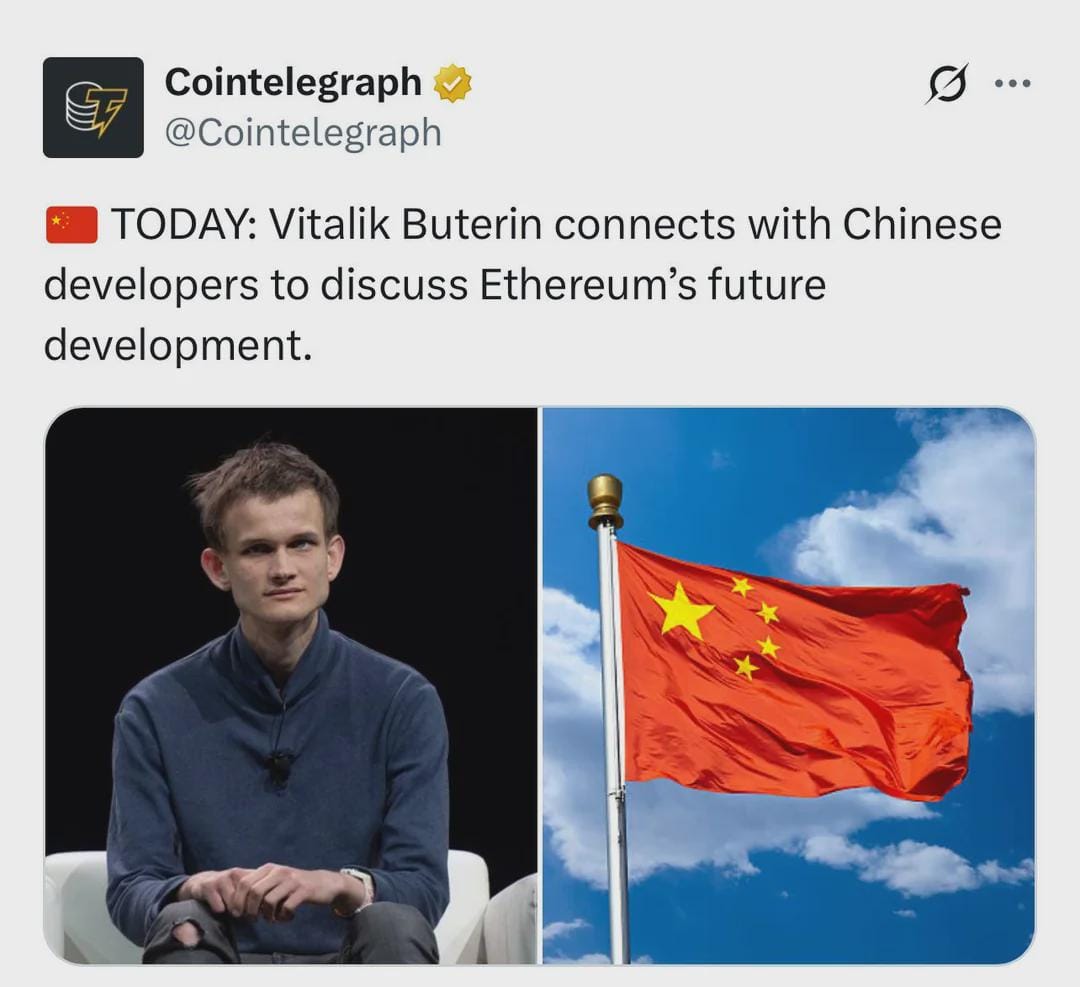Vitalik Buterin connects with Chinese developers to discuss Ethereum’s future development
Xiao said he and Buterin met “often” to discuss blockchain matters “and of course, how Wanxiang could work together with Ethereum to promote the developments and applications of blockchain technology in China.”
Ethereum, Vitalik Buterin’s Chinese connection: How deep does it go?
Ethereum founder Vitalik Buterin’s ties to China are raising questions about the independence of this prominent blockchain and the foundation that oversees its operations.
A growing number of blockchain detectives have been posting what they purport to be evidence of undue Chinese influence on Buterin, Ethereum, and the Ethereum Foundation. This includes claims that Ethereum/Buterin are financially beholden to Chinese conglomerate Wanxiang Group, which has close ties to China’s government.
Buterin’s personal interest in all things Chinese is well documented, including his efforts to learn the language and his commitment to issuing a Chinese-language version of the Ethereum white paper in January 2015, six months ahead of the blockchain’s mainnet launch on July 30.
But Ethereum almost didn’t make it to that launch date. As detailed by Dr. Xiao Feng—vice-chairman and executive director of China Wanxiang Holding Co, Ltd—he first encountered Buterin over WeChat messages in December 2014. They hit it off well enough that they agreed to meet face-to-face in Shanghai in April 2015, during Buterin’s three-month stay in the city.
Xiao said he and Buterin met “often” to discuss blockchain matters “and of course, how Wanxiang could work together with Ethereum to promote the developments and applications of blockchain technology in China.”
Buterin showed up for one of these meetings looking particularly haggard, which Xiao learned resulted from a “night-long meeting” that centered on the Ethereum Foundation’s bare financial cupboard. Concerns were mounting that Ethereum’s mainnet launch might not happen due to its developers’ inability to fund their operations.
Recognizing the “huge pressure” Buterin was under, Xiao said he had the idea that “if we could actively fund the development of Ethereum at this critical moment, we would not only become a major participant in this revolutionary project, but we could also leverage this opportunity to guide and implement Wanxiang’s blockchain strategic planning.”
Xiao proposed donating US$500,000 to the Ethereum Foundation in the name of Wanxiang Blockchain Labs (WBL), a company that didn’t exist then. The donation would actually be made by DataYes, a Wanxiang subsidiary founded in 2013 to provide data and investment management solutions for financial services entities.
But Xiao’s generosity didn’t stop there. He also pledged that Wanxiang “would continue to fund the foundation over the next year, so that the developers could focus on their work to help the Ethereum mainnet go live as scheduled.”
While Xiao’s $500k ‘donation’ was later converted into over 416,000 ETH tokens—currently worth nearly $700 million—there’s never been any public breakdown of what Xiao/Wanxiang received in exchange for their additional funding of the Foundation.






